Guest article by Debbie Sheringham, Digital Impact Producer at BBC and Founder of Straight Talking Social Media
If your business has a social media account, I’ve got some bad news for you – it doesn’t belong there. Social media has been conceived, designed and built for humans to interact with other humans – not for businesses to reach their customers.
But while the social media jungle is not a corporation’s natural habitat, it’s not all bad news. With a bit of camouflage it’s possible to blend in and go undercover. And like anyone going undercover, a back-story is essential – including a character, a history and a set of values that can be easily understood.
Where to start? With Greek philosophy of course…
In the words of Socrates – Know Thyself. Or in this case – know thy brand.
When I start writing for a corporate social media account, the first thing I always do is find out a bit more about the company’s core values. What’s its USP? Why do people value it? How does it sit in the market place?
To turn that information into something useful (and more relatable), I then go one step further and imagine that company or brand as a person.
How? By asking some simple questions:
- If your company was a person, how old is it?
- Is it male or female?
- How educated is it?
How does it compare with its peers? What do other people value about it? Does it have any brothers or sisters?
What are its parents like? (This may feel a bit weird, but stick with it…)
With a bit of imagination, it’s possible to build up a very clear picture of who your business is and what it might sound like.
Eventually, you might be able to write a character statement like this one. This is Petra and she’s the ‘voice’ of Radio 4 Extra on Twitter:
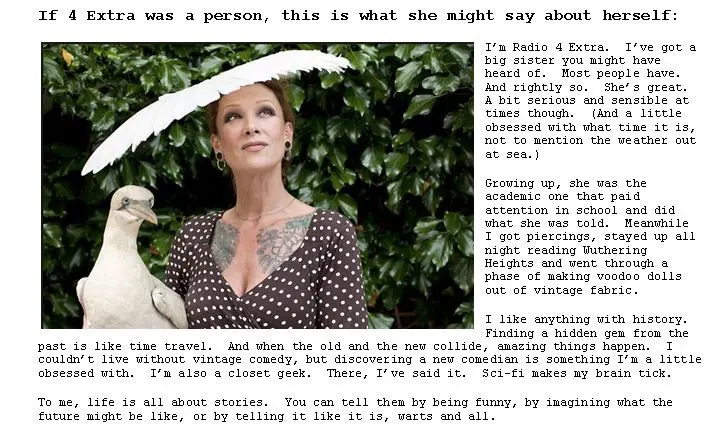
Because I could put Petra in the real world, and because I knew her core values were the same as those as the brand she represented, I knew exactly what to write – and how to write it. All I had to think was ‘what would Petra say’.
It helped me deal with online criticism:
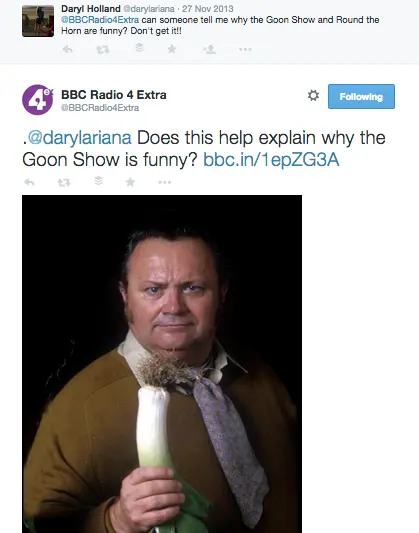
And it helped me interact with our competitors:
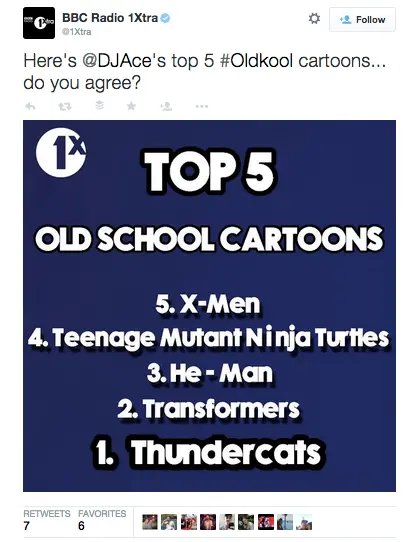
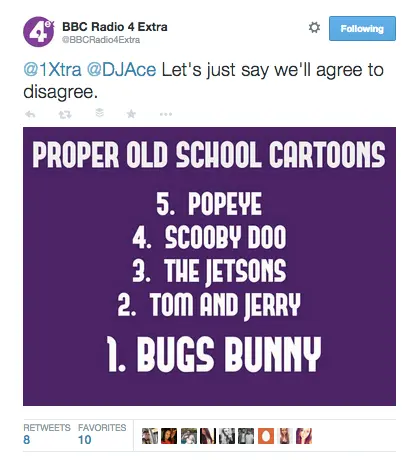
Rather than ‘selling’ our content, the brand was ‘talking’ about our content in a friendly and informal way – with a human tone of voice.
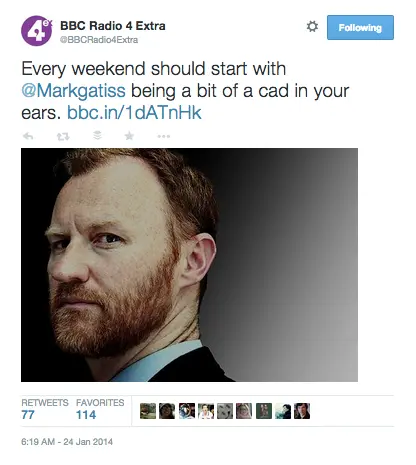
This is just the tip of the iceberg when it comes to finding an authentic tone of voice. To truly masquerade as a human, it’s also necessary to know what your surroundings are (the social media platform), who you’re talking to (your customers) and who you want to attract (new business leads).
And if you don’t have time to work out a proper character for your social media account, then this golden rule should at least improve your chances of sounding like a human.
Put simply – Read your posts out loud. If it doesn’t sound right coming out of your mouth, it probably doesn’t sound right for your business.
Thankfully there is a lot of advice about this that you can read online, and these are two of my favourites:
- Data-Backed Keys To Making Your Voice Stand Out From The Online Noise: https://blog.bufferapp.com/sound-human-stand-social-noise
- Twitter is an editorial medium and brands must get tone of voice right: http://wallblog.co.uk/2013/02/01/twitter-is-an-editorial-medium-and-brands-must-get-tone-of-voice-right/